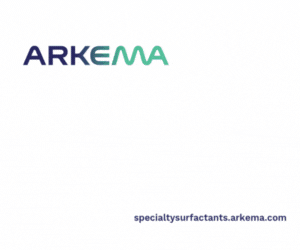 A Q&A about asphalt binder lab compliance
A Q&A about asphalt binder lab compliance
What ingredients create a professional asphalt lab with high standards? We asked Wes Cooper. He is the Asphalt Binder Laboratory Manager at the Asphalt Institute.
Q: What does the Asphalt Institute lab do to stay in compliance with industry standards?
A: We regularly review each test standard. Our technicians sit down with management to review specifications to make sure our testing practices are up to standards. Also, when others come through the lab, we are open to their comments and suggestions. For example, when member company employees or students come through, we talk to them specifically about testing practices. Sometimes a student or member company is aware of a new practice that promotes better compliance and will pass it on to us.
Q: What do you do to maintain accreditation?
A: We have a specific schedule we follow for calibration using R18LabQMS as a template/track for calibration. R18LabQMS is a web-based management tool designed to simplify the compliance process. We also make sure that we immediately address any irregularities in our lab equipment or testing procedures. Finally, we make sure we complete AMRL lab proficiency samples and open our lab to bi-annual AMRL inspections.
Q: How do you maintain state-of-the-art equipment?
A: We make sure we follow the test specification requirements for regular equipment maintenance, as well as maintenance guidelines and practices provided by the equipment manufacturer. In addition, for certain equipment (specifically the Dynamic Shear Rheometer) a service technician will come on-site on a periodic basis to perform in-depth preventative maintenance.
Maintaining a clean environment is also important. For example, if you don’t maintain a clean Bending Beam Rheometer (BBR) bath, you can get chunks of asphalt in the bath, which might get into the actual air bearing. Three or four years ago, we put an added emphasis on keeping the lab as clean as possible. It has paid off, not only in helping maintain the integrity of our equipment, but also in how others regard our laboratory. When visitors or prospective customers come through, and they see a lab that is clean and orderly, they trust you. They have confidence in you.
Q: Specifically, what do you do to make sure your lab equipment is up to date?
A: We strive to maintain good relationships with the manufacturers and are always communicating with them about how to best keep our equipment up to date. And we do constant training—to make sure our technicians know thoroughly how to use each piece of equipment and all of its features as well as maintain its functionality.
Q: What equipment do you use the most in the binder lab?
A: We use the DSR the most frequently. It is the backbone of binder testing because of the flexibility it offers and the wide array of data it provides.
Q: What kind of training do you give your technicians?
A: There is the initial training, which tends to be more broad and general in nature, and then there is the continual, more detailed training that we do so that our lab technicians are always proficient at operating the equipment. We have found that good training also ensures longer equipment life. And we are interested in that because the cost of binder lab equipment is high.
The National Binder Technician Certification (NBTC) program is also a big help in providing an orderly operation. The emphasis is on technicians doing testing right. By having all of our technicians NBTC-certified, we are ensuring that our laboratory is operating consistently using the correct industry practices.
Q: What about round robin tests? What is their purpose?
A: We do round robins (interlaboratory tests performed independently several times) to make sure that we are following proper test procedures, that our equipment is working properly, and that we are doing the tests properly. Round robins can tell us if our equipment is a bit off, a bit out of calibration. They also alert us if something is amiss with our testing practices.
Q: How many round robins do you do each year?
A: Probably six to eight per year. We do one with the Ohio Department of Transportation, as well as the Ontario Ministry of Transportation (MTO). Mike Anderson, the Director of Research Laboratory Services for the Asphalt Institute, conducts a roofing proficiency round robin in which we also participate. It usually involves 35 to 40 participants.
Q: Can you summarize the keys to compliance?
A: There are a few obvious and practical ones: we ensure that we are following the most current testing specifications (AASHTO, ASTM, etc.), we make sure our equipment is tuned properly through regular calibration and maintenance, and we continue to train our technicians, no matter how proficient they already are.
But it’s important to remember that compliance doesn’t happen by accident; it is crucial to have a foundation, an infrastructure, a plan that helps us organize and operate efficiently. R18LabQMS, for example, is a tool that helps to provide a solid foundation from which to operate. It provides the platform from which we can do our work orderly and accurately.
With all that said, however, maybe the most important key is our attitude toward compliance. A lot of it comes down to the technicians in the lab and their attitude toward their work. We—everyone in our binder lab, from top to bottom—must care about compliance. We must want to be compliant with proper test procedures and want to maintain compliant equipment. And we must want to be knowledgeable technicians that really understand what we are doing. We don’t want to be button pushers. We want to make sure we understand the principles behind the tests and understand the physics of asphalt binder.
AI’s lab reputation also plays a part here. We have the reputation in the industry of having a high standard and that keeps us on our toes. People come to our lab to see how it is done. That challenges us to keep up our reputation.
Q: We’ve talked about the mechanics of compliance, but what about the benefits?
A: There are quite a few. First off, people trust you. If you stay compliant, you’ll maintain accreditation, and trust can be more readily built between the lab and the client. We feel that AI’s reputation for being reliable and consistently compliant eliminates doubt in the minds of our customers.
If you have a reputation for compliance over time, which tells people—customers—that you care. It communicates to them that if there is an issue, you will resolve it.
This confidence emanates from the lab technicians. They are confident because they are well trained and care about their work. Our clients have confidence in us because they get the best service from a lab they trust.













